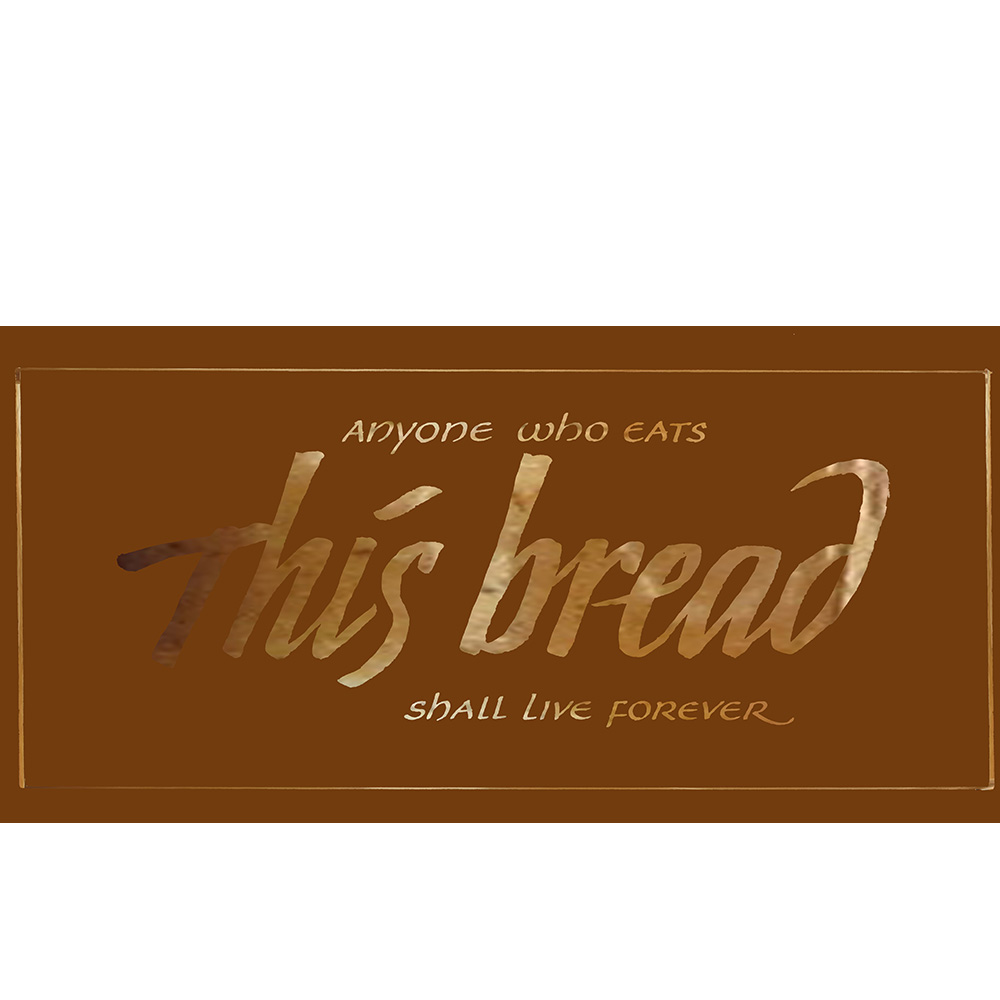This content has been archived. It may no longer be relevant
I am the bread of life … Whoever eats of this bread will live forever; and the bread that I will give is my flesh for the life of the world (John 6: 48, 51).
***
For five weeks in July and August, the Church reads through the famous Bread of Life discourse from John 6. We are invited in these weeks to contemplate at length Christ’s teaching on the true bread that comes down from heaven, the bread which is the life of the world.
For Catholics and Orthodox Christians who read John 6, it is a simple and very beautiful teaching: Jesus came to give us life, he gives us life by giving us food and drink which is his body and blood, true food, true drink, and if we receive it and feed on it, we will live forever …
And hey! Here it is! Hurray! Up we go to the altar of God, and “The Body of Christ.” “Amen.” “The Blood of Christ.” “Amen.” And we have life within us, and we will live forever.
Of course that is how it is; of course that is both the life God wants to give us, and the manner in which he wants to give it to us. That’s why he instituted the Eucharist, and why it is the center and source of our religion.
But… well, what about everyone else? Jesus does say that unless you eat the flesh of the Son of Man and drink his blood, you will not have life within you (v. 53).
So … does that mean only people who receive the Eucharist go to heaven? Only Catholics and Orthodox (because our understanding of apostolic succession and priesthood means we are the only two groups who have a valid Eucharist) are saved? What? Is that what the Church teaches?
Well, no. Not at all, actually. Isn’t that good news? I’ve always been amazed at how many people believe that’s what Catholics believe—that only we get to go to heaven and that all others are condemned.
This is so far removed from what the Church teaches, but there it is: many still think that of us. (What the Church actually teaches would take us far beyond what I want to write about this month, but it’s easy enough to find—in the Catechism, for example.)
So where does the Bread of Life discourse fit into what we do believe?
John 6 is, indeed, about the Eucharist. But it’s not only about the Eucharist, or we would be stuck with that position—that the only way to be saved by Christ is to physically receive Communion, a position that would damn the large majority of humanity to perdition.
And that’s why I love verses 44-47 of the discourse, which comes up on the 19th Sunday of the year, where the Lord opens up for us the wider sense of what he is teaching:
No one can come to me unless the Father draw him … and they shall all be taught by God. Everyone who has heard and learned from the Father comes to me … whoever believes has eternal life.
They shall all be taught by God. Isn’t that beautiful? It is all about the Eucharist, yes, but then the Eucharist itself is all about Jesus and coming to him and believing in him.
To simply march up the aisle, receive what the priest is distributing there, and then march back to one’s pew, without having been taught, without having heard, without having learned, and without believing too much … well, I won’t go so far as to say it won’t do you any good (Jesus is still there with you, after all), but clearly much is lacking, right?
And the one who cannot receive the Eucharist for some perfectly good reason (they simply don’t know about it, they belong to another religion entirely, they sincerely believe in a form of Christianity that understands these matters differently) but who diligently strives to come to God each day with a humble heart and a listening spirit, is indeed “coming to Jesus” even if they might not quite know that’s what they are doing.
That person is indeed feeding on the life of Christ, which is to do the will of his Father in heaven, drinking the blood of Christ which is his sacrificial love for the world.
They will all be taught by God. Those of us who do know what the Bread of Life truly is, who know at what Table we can receive the very life of God in a fashion that is concrete, physical, touchable, tasteable, literal food and drink that bears God’s innermost being into our innermost being, have a deep responsibility to not merely receive Communion, but to be indeed taught by it.
We have a responsibility to be formed by it and shaped by it so that our lives are truly indistinguishable from his, that the way we live is in fact a perpetual and ongoing Eucharist, love poured out, life given for the world.
I am afraid that so many people never find their way to that sacred Table to receive that most sacred Food because so many of us who do, show so little sign of it in how we live our lives. We eat and drink God—do our lives reflect that fact?
Meanwhile the Father is teaching, teaching, teaching, and all who have an ear to hear and a heart to listen can be taught, and in the end all who hear and who learn have indeed come to the Lord and are (even if in this world invisibly and mysteriously) seated at that Table and being fed by that Host.
The Word is made Flesh, and all who receive the word live in him and he in them





